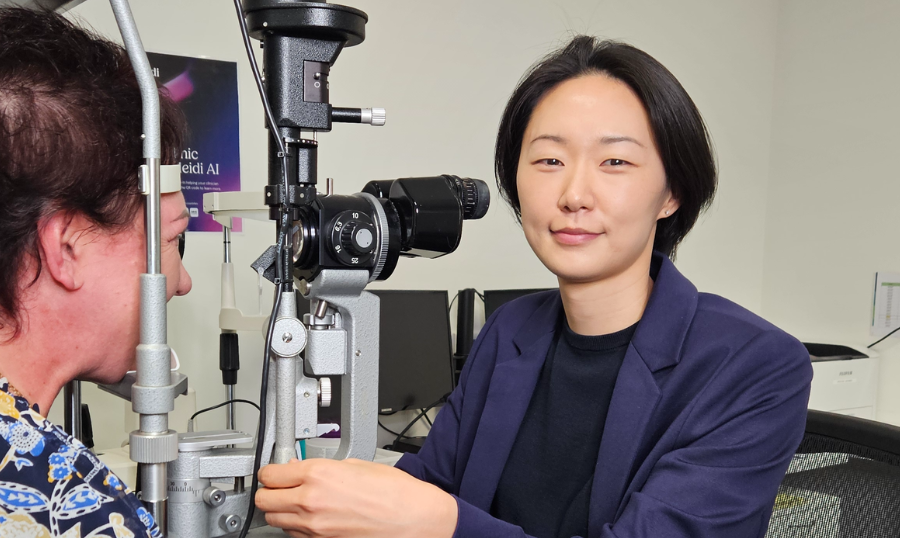Auckland Eye Welcomes Cornea and Anterior Segment Specialist Dr Bia Kim
Auckland Eye is pleased to welcome Dr Bia Kim, a highly trained Cornea and Anterior Segment Specialist, to our team.

Glaucoma is an eye disease that affects 2 to 3 per cent of people over the age of 60. It often has no symptoms and can slowly develop over time sometimes resulting in irreversible damage before it has been detected. Glaucoma occurs when the pressure within the eye (called the intraocular pressure) becomes high enough to cause damage to the optic nerve.
A normal healthy optic nerve has about a million nerve fibres which come from the retina, but when glaucoma develops these nerve fibres start to die off. If enough nerve tissue is lost, then the vision starts to be affected. Glaucoma can be caused by intraocular pressure, poor blood supply to the optic nerve, family history, age or other associate conditions such as high blood pressure, diabetes or near sightedness.
There are a number of options for managing glaucoma such as eye drops or surgery. There is also an option available called Selective Laser Trabuculoplasty (SLT). SLT is a highly effective out-patient laser procedure that reduces intraocular pressure inside the eye by opening up the pores that drain the pressure fluid out of the eye. SLT uses a unique combination of minimal energy and short laser pulses which provide results similar to when using drops.
The benefit of SLT is that it can reduce or eliminate the need to apply drops on a daily basis and there is no risk of the side effects that are sometimes experienced with drops. It is a very safe painless procedure that is done in the clinic just with anaesthetic drops and takes only 10-15 minutes to treat both eyes. The downside is that while it is effective in 80% of people it is ineffective in 20% .
We hope one day to be able to restore vision lost from glaucoma, but that can’t presently be done. Once nerve fibres die off and nerve tissue is lost it cannot be regenerated to restore vision. The aim of glaucoma treatment is to reduce the intraocular pressure inside the eye, which will slow down or stop any further nerve damage.
Your eye specialist will be able to help determine the best course of action for you. Call us on 0800255393 to find out more!

Auckland Eye is pleased to welcome Dr Bia Kim, a highly trained Cornea and Anterior Segment Specialist, to our team.

Discover how Auckland Eye is redefining inclusive healthcare by launching New Zealand’s first assistive website toolbar.

Macular degeneration is a leading cause of vision loss in older adults. There’s no cure, but its progression can be slowed. Here’s what to know.